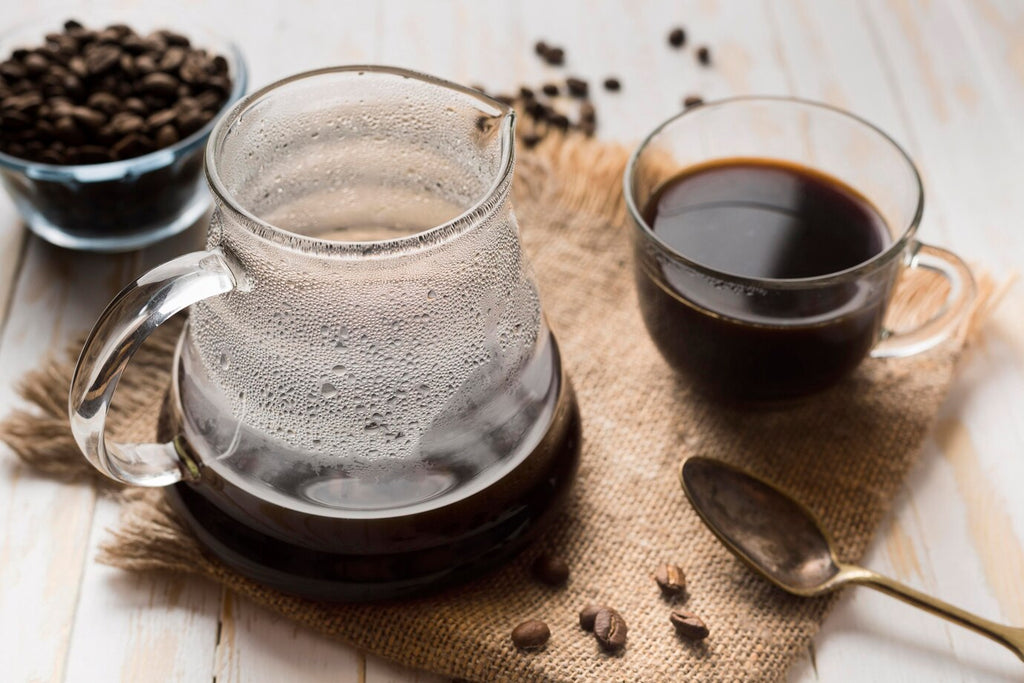
What Happens When You Overbrew Coffee? The Science of Extraction

We’ve all been there waiting for that perfect cup of coffee, only to sip it and realize it’s not as great as you’d hoped. If your coffee’s tasting a bit off, there’s a chance you’ve just made the all-too-common mistake of overbrewed coffee. But what does that mean? And more importantly, how can we avoid it? Don’t worry; we’ve got you covered. Let’s break down the coffee extraction process, figure out why over extracted coffee can leave you with a bitter coffee taste, and—most importantly—how to keep that cup of joe tasting fresh and smooth.
The Coffee Extraction Process: What’s Going on in That Cup?
When you brew coffee, it’s not just about pouring hot water over the grounds—it’s about striking the perfect balance of science and art. Coffee extraction happens when water interacts with the grounds, dissolving soluble compounds to pull out flavors, caffeine, and aromatic oils that make each cup so unique. The key to a great brew lies in factors like water temperature, grind size, brewing time, and coffee-to-water ratio, all working together to influence the final taste. The process starts by extracting bright, acidic notes, followed by sweeter, balanced flavors, and finally, the deeper, bitter compounds. Get it right, and you’ve got a harmonious cup that highlights the bean’s origin, roast, and careful preparation. Go too far, though, and overextraction can leave you with over-brewed coffee—bitter, harsh, and unbalanced—proof that every cup is a delicate dance of precision and passion.
So, What Happens When You Overbrew Coffee?
It’s simple—overbrewed coffee means the water stayed in contact with the grounds too long, pulling out too many of those bitter compounds. This is the point where your coffee starts to go south. Let’s take a closer look at what’s going on when you overbrew:
-
Bitter Coffee Taste: This is the big one. When you overextract coffee, it releases tannins and other bitter compounds that can make your coffee taste like sitting in a mug for too long. That sharp, unpleasant bitterness leaves a bad taste in your mouth—definitely not what you want when trying to enjoy your morning brew.
-
Flat, One-Dimensional Flavors: Overbrewing doesn’t just make coffee bitter; it also strips away the brighter, more subtle flavors. Instead of tasting fresh and vibrant, overextracted coffee tastes flat, dull, and lifeless.
-
Lost Aroma: You know that amazing smell when you first brew coffee? Overbrewing it means that the lovely aroma fades away, leaving you with a less inviting cup. That’s because the oils that give coffee its richness evaporate the longer it brews.
How to Avoid Bitter Coffee: Tips for Brewing Perfection
No need to stress! Preventing overbrewed coffee is easier than you think. Here are a few simple tricks to help you brew a smoother, tastier cup every time:
1. Stick to the Right Brewing Time
Timing is everything! Each brewing method has an ideal brewing time, and sticking to it is the key to avoiding overextracted coffee. For a pour-over, aim for around 3-4 minutes. For a French press, keep it around 4-5 minutes. Any longer, and you risk pulling out too many bitter compounds.
2. Get Your Grind Size Right
The size of your coffee grounds plays a huge role in how quickly water extracts flavors. If your grind is too fine, the water extracts too much, too quickly, leading to overbrewed coffee. If it’s too coarse, the water won’t extract enough, leaving you with a weak, underwhelming brew. Aim for a grind that matches your brewing method for a balanced cup.
3. Watch Your Water Temperature
Hotter isn’t always better when it comes to coffee. If your water’s too hot, you can overextract coffee and bring out those bitter notes. The sweet spot for water temperature is between 195°F and 205°F (90°C to 96°C). This range is perfect for extracting the right flavors without going overboard.
4. Measure Your Coffee and Water Ratio
Eyeballing your coffee and water might seem like an easy shortcut, but it can lead to disaster. A good rule of thumb is a 1:15 ratio—one gram of coffee for every 15 grams of water. Too much coffee can make your brew overly strong and bitter, while too little coffee can leave you with a weak, under-extracted cup.
5. Always Use Fresh Beans
Stale coffee beans are the enemy of a good brew. If your beans are old or have been sitting around too long, they’re more likely to produce overextracted coffee, even if you’ve followed all the right steps. Always go for fresh beans to get the best flavor and aroma.
Ready to Brew Your Perfect Cup?
Now that you know the ins and outs of overbrewed coffee, you can say goodbye to that bitter, unpleasant taste and enjoy a more balanced, flavorful cup every time. The key is understanding the coffee extraction process and making simple adjustments to your brewing routine.
If you’re ready to step up your coffee game, check out our article on how water quality affects coffee flavor for even more tips and tricks to perfect your brew.
Looking for the freshest beans to get you started? Visit Olde Brooklyn Coffee or contact us today. Let’s brew something amazing together!



